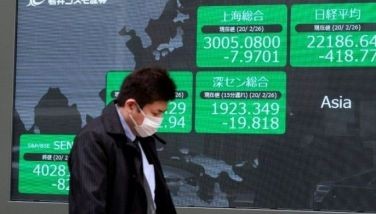Agenda for the Philippines in the UN
(Immediate past Philippine Permanent Representative to the UN in New York. He was also former Senior Undersecretary for Foreign Affairs and Ambasador to Italy and Brazil.)
The United Nations celebrates its 63rd anniversary this year in the midst of financial, food, and energy crises with continuous concerns about climate change and terrorism.
The UN also finds that international relations today is not only a matter among states, but more importantly, a matter among individuals and groups of individuals.
The Annual Report of the Secretary General to the General Assembly details the achievements for the year and the challenges which confront the organization. Many believe that the UN has been a convenient multi-purpose tool for governments, non-governmental organizations and individuals. They also observe the continuing divide between developed and developing states — between the rich and the poor.
In this context, the Philippines could lead on three issues where it can make a difference: first, interfaith dialogue; second, migration and development; and third, debt for equity in the projects of Millennium Development Goals.
Former Secretary General Kofi Annan recommended that the General Assembly proceed with steps to eliminate the Trusteeship Council both in his Report on the Work of the Organization (2004) and In Larger Freedom (2005). World leaders endorsed this recommendation at the 2005 World Summit and recorded their agreement in the Outcome Document.
The Philippines should take the lead to replace the Trusteeship Council with a Council on Interfaith, Inter-Civilizational and Inter-Cultural Council. Alternatively, the Philippine Mission to the UN in New York could consult with delegations on the possibility of writing into mandate of the Trusteeship Council consideration of reports of several interfaith initiatives, and recommend measures on practical ways to implement them. An example of such initiative is that of ACRP-Asian Conferences of the Religion for Peace — which held its last session in Manila recently.
The Philippines has an excellent track record to lead this initiative. We organized a ministerial meeting on interfaith dialogue in 2004 and organized a summit on the subject in 2005. Both conferences issued outcome documents. We also organized the Tripartite Forum on Interfaith Dialogue composed of governments, the UN system and non-governmental organizations. We were also able to establish a focal unit in the office of the Secretary General on the subject.
The Outcome Document of the Summit of World Leaders in 2005 incorporated the nexus between international migration and development. An offshoot of the Summit is the Global Forum on Migration which held its first session in Belgium while the Philippines will host the second session in a few a days. This will be a golden opportunity for us to promote greater solidarity among labor exporting countries as well as more cooperation from labor receiving states and transit states. The Forum should be more than a “talk shop” and provide a mechanism to monitor/regulate the global phenomenon of migration. It is also important to determine the relationship between the Forum and the UN with the International Office for Migration.
In this light of this, the Philippines’ efforts to protect and promote the welfare of our OFWs should develop into a strategic pillar and tool of foreign policy.
The current financial crisis offers a window of opportunity to further our advocacy of debt for equity swap for projects of Millennium Development Goals. The Group of 77 and China have been endorsing this proposal for several years. Developed countries, including some of the Paris Club, have expressed interest in it. It is now time to test its viability and negotiate a pilot project for this purpose.
These initiatives will energize Philippine multilateral and bilateral diplomacy which has been criticized as timid, inept and drifting. The challenges are great but every great achievement begins with a mission impossible.
- Latest




















